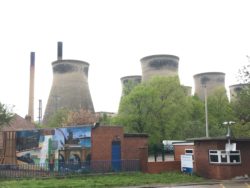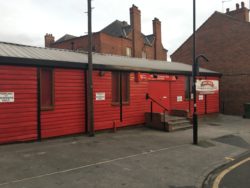Northern Exposure: Race, Nation and Disaffection in “Ordinary” Towns and Cities after Brexit

Written by Rosie Samuel
In this post, Project Officer Rosie Samuel introduces us to an exciting new research programme about the impact of Brexit on the North of England.
What are the implications of Brexit on race relations, new migrations and peoples’ sense of place and belonging in the North of England? A new project housed at The Centre on Ethnicity and Racism Studies (CERS) at the School of Sociology and Social Policy is to pose these questions for a major ESRC funding project, Race, Nation and Disaffection in “Ordinary” Towns and Cities after Brexit. The project runs from Feb 2019 to May 2021.
The North of England has played a central role in debates about the causes and consequences of the Brexit referendum, especially in the widespread perception of a divided Britain. The region is often stereotypically viewed as a place of simmering racism and xenophobia: pitting White British, older British minority groups, and newer incomers, such as asylum seekers or East European workers, against each other in deprived and depressed post-industrial locations.
 Northern Exposure interrogates these perceptions of the North, while broaching sensitive questions of everyday nationalism, race and racism in largely understudied and marginalised places. The project fills out and enriches the argument that the disaffection expressed by voters, or in tensions seen in particular communities, is linked to the long term post-industrial transformation of the region.
Northern Exposure interrogates these perceptions of the North, while broaching sensitive questions of everyday nationalism, race and racism in largely understudied and marginalised places. The project fills out and enriches the argument that the disaffection expressed by voters, or in tensions seen in particular communities, is linked to the long term post-industrial transformation of the region.
The project is led by Professor Adrian Favell and involves a large team of researchers from the School, as well as colleagues in the Leeds University Business School, Law, and Politics and International Studies. It will investigate exactly how Brexit impacts upon local communities in the North, amidst growing inequalities and post-industrial decline.
The project will offer a detailed statistical profile of 16 “ordinary” large towns and small cities in the North of England, going back in time. It also engages in intensive ethnographic work on four localities running from the North West, through West Yorkshire, to the North East, which capture key elements of the post-industrial North in their histories, changing identities, and contemporary struggles: Wakefield, Preston, Halifax (Calderdale) and Middlesbrough. It engages in co-production of the research with local authorities, as well as other key stakeholders, such as the local police, regional research agencies and voluntary organisations.
Talking with local stakeholders, community organisations, and social work practitioners, the research team is building up a clear vision of the everyday concerns that damage positive visions of diversity, community and inclusion. This will lead on to interviews with older long term residents from different origins and backgrounds, gathering personal oral histories and views about the urban, social and political change around them.
The project also includes a documentary film, that is being made as part of the research by acclaimed filmmaker, Lucy Kaye.
Policy makers in the region feel that conventional multiculturalism and anti-racism are not working, yet that a narrow focus on socio-economic solutions will not solve the riddle of “inclusive growth” or address emergent ethnic conflicts. The research will transmit voices not often heard into local policy formulation. It will feedback residents’ concerns into neighbourhood policing. With local partners, the project seeks tools for policy intervention, identifying mechanisms that lead to community breakdown or community cohesion.
 A key output from the project so far is a policy briefing co-authored with Runnymede Trust. The briefing, Class, Race and Inequality in Northern Towns, highlights that in political and media narratives the conception of “working-class” is often “White and Northern,” and tends to ignore significant ethnic minority working class communities that are a feature of many Northern towns. The briefing stresses that “deep racial and ethnic inequalities” are not being adequately addressed by existing plans to boost economic growth in the region, such as the “Northern Powerhouse,” and calls for racial inequalities to be tackled as part of any inclusive economic growth agendas for the North.
A key output from the project so far is a policy briefing co-authored with Runnymede Trust. The briefing, Class, Race and Inequality in Northern Towns, highlights that in political and media narratives the conception of “working-class” is often “White and Northern,” and tends to ignore significant ethnic minority working class communities that are a feature of many Northern towns. The briefing stresses that “deep racial and ethnic inequalities” are not being adequately addressed by existing plans to boost economic growth in the region, such as the “Northern Powerhouse,” and calls for racial inequalities to be tackled as part of any inclusive economic growth agendas for the North.
In addition, team members have presented a series of talks related to the project, including talks at the Socio-Legal Studies Association conference, a UCL public panel, the National Pensioners Convention, and the Brexit Symposium at University College, Oxford. Two board meetings have taken place with representation from a variety of stakeholders including Local Authorities, West Yorkshire Police, Academic Advisory Board Members, Key Cities, Runnymede, Stop Hate UK and JUST Yorkshire.
Further details can be found on the project’s website: https://northernexposure.leeds.ac.uk/
